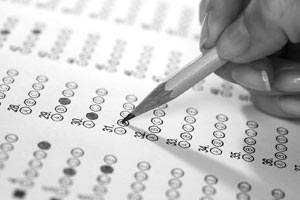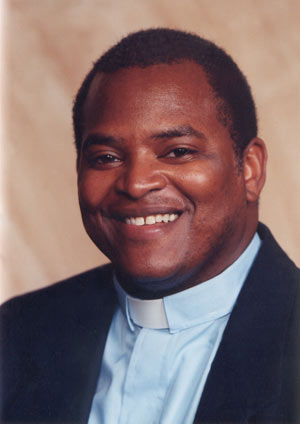A five-year evaluation of the Milwaukee Parental Choice Program by the School Choice Demonstration Project, based at the University of Arkansas, found the school voucher program increased the chances of students graduating from high school and going on to college. 
The first school voucher program of its kind began in Milwaukee in 1990; in 2006, Wisconsin policymakers mandated that the School Choice Demonstration Project lead a five-year evaluation of the program to determine whether it was successful.
According to John Witte, professor of political science and public affairs at the University of Wisconsin – Madison, the Choice Program boosted the rates at which students graduate from high school, enroll in a four-year college and persist in college.
“Since educational attainment is linked to positive life outcomes such as higher lifetime earnings and lower rates of incarceration, this is a very encouraging result of the program,” he said.
The longitudinal study, which tracked the same 2,727 voucher students in third through ninth grades with an equal number of similar Milwaukee Public School students, found that private voucher schools made gains in reading in 2010-11 that were significantly higher than those of a matched sample of peers in MPS, but math achievement scores remained the same as the previous year.
DPI waiver would tap into accountability program
According to the MacIver Institute, the Department of Public Instruction’s waiver would tap into the upcoming school accountability program to fairly assess the state’s public schools in a stronger way than No Child Left Behind’s “Adequate Yearly Progress” guideline.
The waiver relies on a dynamic system of goals and measurements to gauge how students within an institution are performing. Every school and district will have rolling personalized goals that assess where pupils are and what true growth would look like. Their goal is to create a fair and evolving system that holds schools accountable for not just student test results but also their achievements in the classroom.
Waiver concerns Messmer president
 Br. Bob SmithMessmer Catholic Schools president and CEO Capuchin Br. Bob Smith is pleased with the high quality education provided to students attending St. Rose and St. Leo K4-8 School, Messmer Preparatory Catholic School K4-8, and Messmer High School, the nation’s first religious school to participate in a voucher program.
Br. Bob SmithMessmer Catholic Schools president and CEO Capuchin Br. Bob Smith is pleased with the high quality education provided to students attending St. Rose and St. Leo K4-8 School, Messmer Preparatory Catholic School K4-8, and Messmer High School, the nation’s first religious school to participate in a voucher program.
Despite the schools’ successes, the recent release of the DPI’s final version of the federal No Child Left Behind waiver proposes a statewide accountability system and a DPI intervention policy for under-performing public schools, and includes a listing of voucher schools DPI ranks as underperforming.
The lack of specific language for voucher and charter schools, most of which operate under different guidelines than traditional public schools, is a concern for the Choice Program. The waiver suggests that the state will increase power over choice schools, and is something not present in other states where similar tax credit programs exist.
According to Br. Bob, the voucher school rankings for private schools were based on different data than public schools. Additionally, voucher school data did not need to be included in the waiver, but the DPI chose to compare the schools.
“Schools that participate in the Parental Choice program play a vital role in educating children and each and every school should be held accountable, but the standards and data to compare schools need to be fair,” he said. “Accountability has to compare apples to apples, including when test scores begin to count, what student test scores, such as a whole class or select students, are included in the averages and what resources are provided to get the job done. Our unifying goal must be a rigorous course of study, high school graduation and college or post-secondary educational attainment. With those standards, schools such as Messmer High School clearly and consistently demonstrate an ability to prepare students for college, and ensure they have the necessary skills to perform well. The unnecessary intrusion by DPI into private school operations is a serious concern lawmakers need to consider.”
Bill addresses special needs students
In addition to Br. Bob’s concern on new accountability standards, is Senate Bill 486, debated in a senate hearing on Feb. 28. If passed, the bill would provide a scholarship dollar amount that would allow students identified as special needs to attend a public school outside their district area or a choice participating private school. The funds would follow the student to whatever school they attend, public or private.
To qualify for the scholarship, the following conditions must be met:
1. The school has notified the DPI of its intent to participate in the program and the child has been accepted by the school.
2. If the school is a private school, it is approved as a private school by DPI or is accredited.
3. An individualized education program (IEP) has been completed for the child.
4. In the previous school year, the child attended a public school, attended a private school under a parental choice program (PCP) or did not attend school in Wisconsin.
The bill directs DPI to develop a document, for inclusion with an application, comparing the rights of a child with a disability and his or her parent under state and federal handicapped education law with the rights of a child with a disability under the program created by this bill and federal handicapped education law.
Those opposing this bill believe it will influence public school instruction of special needs students, as it would funnel funding with the student to the alternative public school or to a private school. Private schools maintain that the funds are better utilized, as they are able to educate most special needs children with less money.
DPI not supportive of religious schools, says Br. Bob
According to Br. Bob, despite the federally mandated choice voucher program, not only is the DPI not supportive of private and religious schools, the program has been met with hostility from its onset.
“The argument by the public schools is that they take everyone because they are mandated and paid for it,” he said. “Private schools educate a number of students and save money because they do it for less money. The state of Wisconsin has saved $52 million as a result of the school choice program.”
While not mandated to do so, private schools have always served special needs students, such as a recent graduate of Marquette University who attended Messmer on the voucher program, he said.
“She became a pen pal of Maya Angelou and is a phenomenal speaker and looking to go to Haiti this summer,” said Br. Bob. “She is legally blind and for four years we provided a teacher for part of the day to help her to learn to read. She can’t discern between colors, so we bought her an extra large computer and large print textbooks. She has one glass eye and 30 percent vision. It cost us about $40,000 to educate her, and we paid for it.”
Cost of instruction
far less in choice schools
According to Br. Bob, the cost of instruction is at least $2,000 less than the average for Milwaukee Public School elementary students and half the cost of instruction for high school students. Messmer, founded in 1926, also has a record of accomplishment in educating students, which is why they want their voice heard on the matter.
“Messmer students are two and a half times more likely to graduate high school and enter college than their public school peers; that 85 percent of its students will continue to college and 14 percent enter the workforce or military upon graduation,” he said, “and many of our graduates are today’s local and national business leaders, philanthropists and scholars.”
According to Kim Wadas of the Wisconsin Catholic Conference, the Feb. 28 hearing contained testimony from both sides of the issue, but she is hopeful for a favorable resolution in the next couple of weeks for the private and religious schools.
“Parents and students showed up with special needs students in support of the bill and testified that it was hard to find educational experience appropriate for their child,” she said. “There were also a lot of people who were employees of the public schools who worried about funds going to private schools and the effect on the public schools.”
“There was a contingent of people from Lutheran, Catholic and other various schools, such as Waldorf Schools, who already provide services to special needs students, but could benefit with extra funds for the students,” she said.
Wavier is complex, admits superintendent
According to Kathleen Cepelka, superintendent of schools for the Archdiocese of Milwaukee, the archdiocese is committed to having schools that are choice schools and that all of the schools be accountable for optimizing student learning.
“This is a very complex waiver and it has gone through many metamorphoses,” she said. “We are very committed to accountability for the schools and in seeking equity and equitable funding for our schools based on what those schools do.”
With all of the archdiocesan schools going through accreditation processes, archdiocesan curriculum standards, administering standardized tests and having a board of directors, Br. Bob said the Catholic schools not only meet, but also often exceed the public school standards. However, while accountability is necessary, the results need to be measured after adequate time in the school and across the class, as public schools are measured.
Br. Bob believes that patterns of success are crucial when considering intervention, rather than a single test score on a single day.
“You just can’t pick off the weaker schools that are just starting up and who lack strong leadership and allow the DPI to determine who fits in and who is underperforming,” he said. “No Child Left Behind was set up for the public schools because all of a sudden they are using a barometer to put aggregate schools and kids in title services with using just one year of data while they use three-year data for public schools, and they didn’t tell anyone.”
